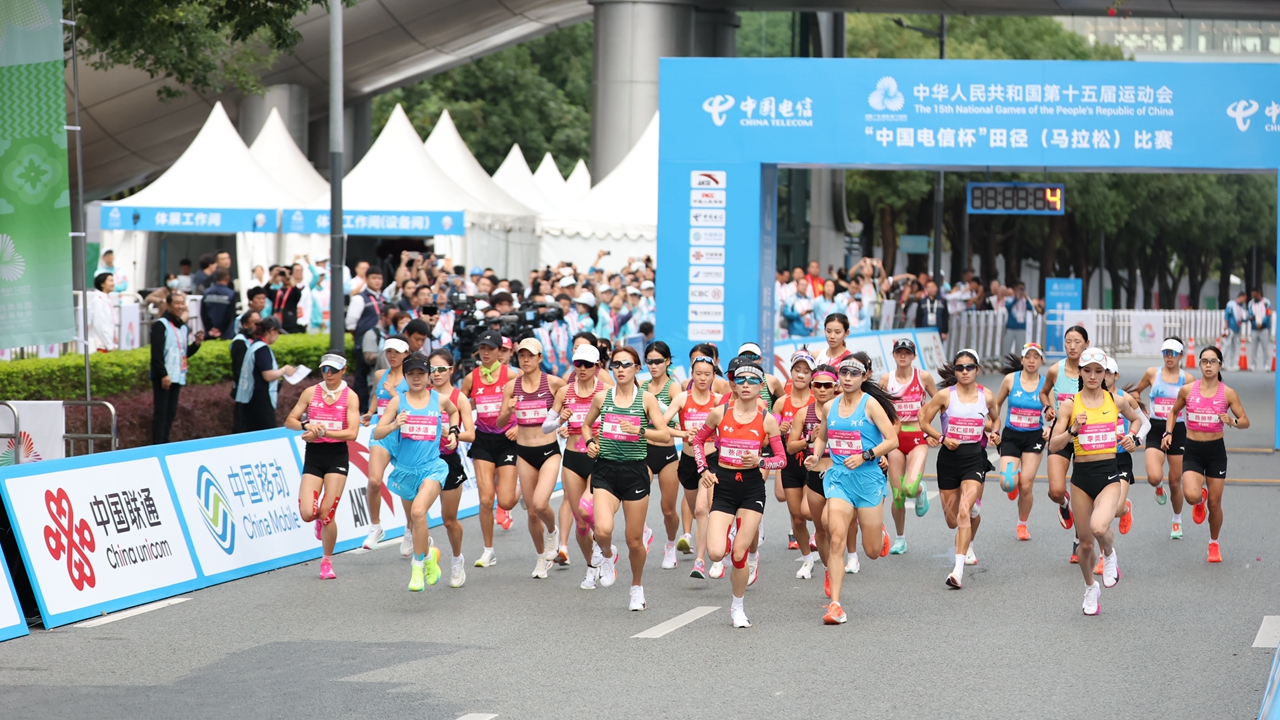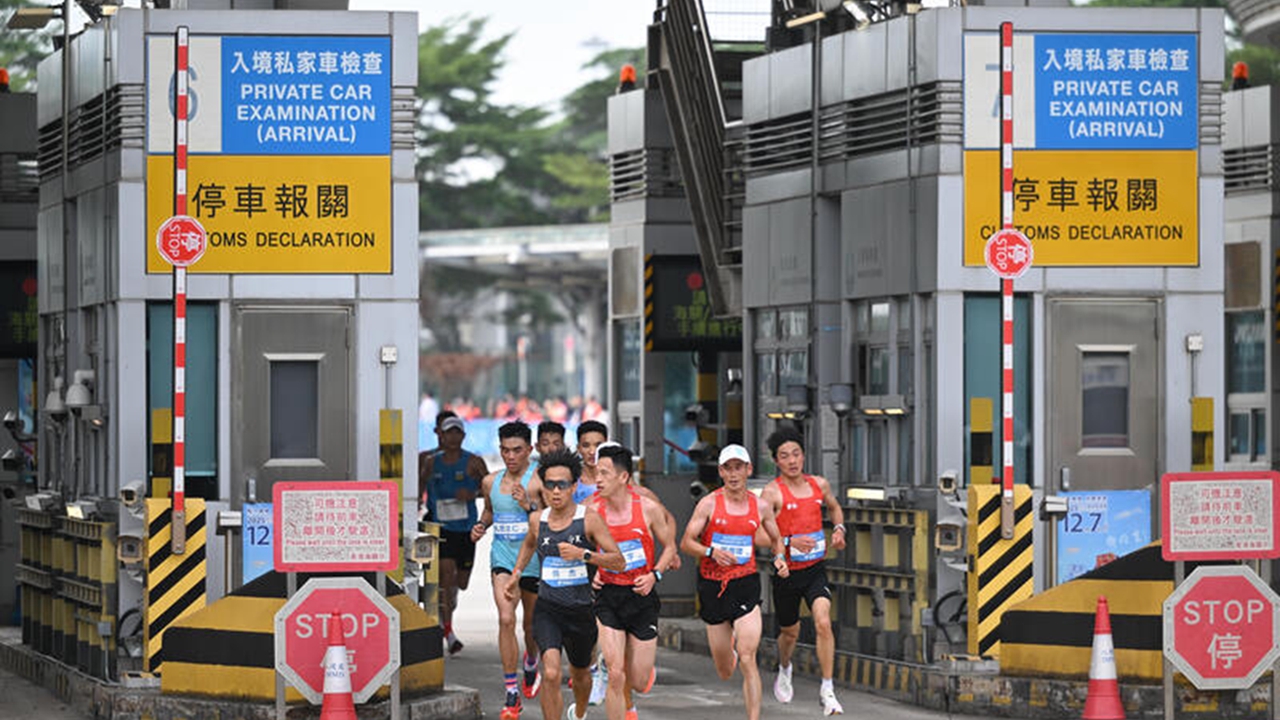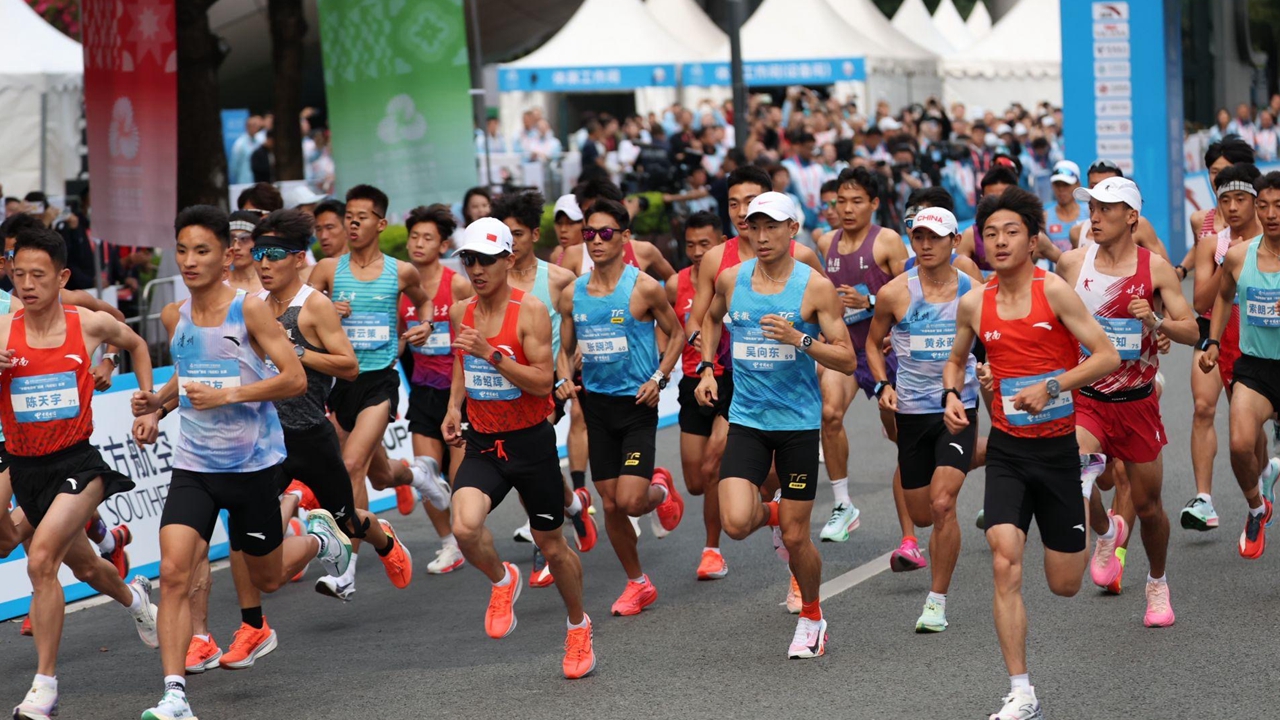1st cross-border marathon at China's National Games held
Writer: Zhang Yu | Editor: Zhang Chanwen | From: Original | Updated: 2025-11-15
In a historic first for China's National Games, the men's and women's marathon titles were decided today in a race that crossed the border from Shenzhen into Hong Kong.

Athletes participate in women's marathon in a race that crossed the border from Shenzhen into Hong Kong. Lai Li
He Jie of Ningxia, the national record holder, won the men's race with a time of 2:12:07, while Zhang Deshun of Yunnan claimed the women's gold medal in 2:30:20 at the 15th National Games.
The event, which started and finished at the Shenzhen Bay Sports Center, marked the first cross-border marathon in the games' history. A total of 69 athletes participated, with 36 in the men's division and 33 in the women's.
An emotional He Jie celebrated his victory with tears and a triumphant shout. "Who says roses can't grow in Ningxia? I am one!" he exclaimed, a moment that drew cheers and applause from the crowd.

He Jie celebrates his victory after winning the men's race with a time of 2:12:07. Photo from Shenzhen Evening News
The 42.195-kilometer (26.2-mile) course used the Shenzhen Bay Highway Bridge as a link between the two cities. Runners started in Shenzhen, passed through the Shenzhen Bay Checkpoint, and entered Hong Kong's Yuen Long District for a 21.85-kilometer segment before returning to Shenzhen for the finish. The Shenzhen portion of the race covered 20.345 kilometers within Nanshan District.

Runners pass through the Shenzhen Bay Checkpoint. Photo from Shenzhen Evening News
Organizers refined the route from a test event held in February. The final course was flatter and wider, utilizing eight-lane roads. The number of U-turn points was reduced from three to two, and intersections along the route were minimized to lessen the impact on city traffic.

Male athletes participate in the Game's first cross-border marathon. Lai Li
To manage the unique cross-border element, authorities implemented a "pre-clearance and closed-loop management" system, a model previously used for the Guangdong-Hong Kong-Macao Road Bicycle Race. The system was adapted for the marathon and utilized digital tracking, including facial recognition and real-time GPS for athletes and support vehicles, to ensure secure and efficient border crossing.
The marathon represented the first time Shenzhen and Hong Kong have jointly hosted a National Games event.